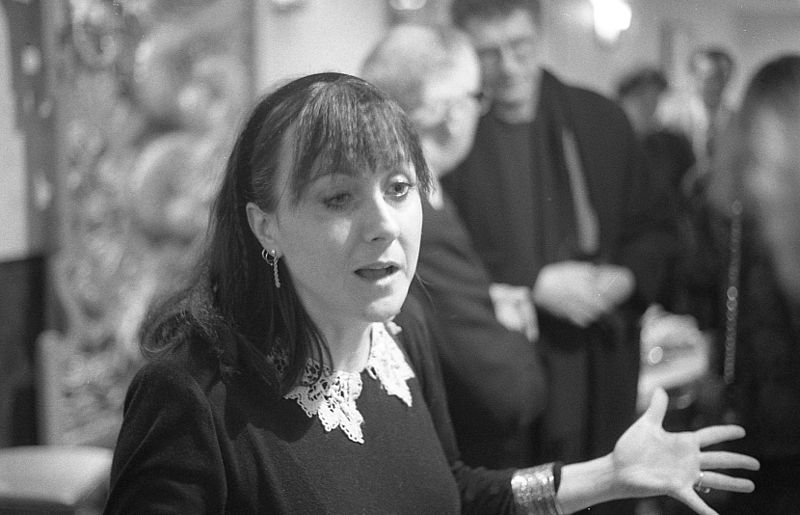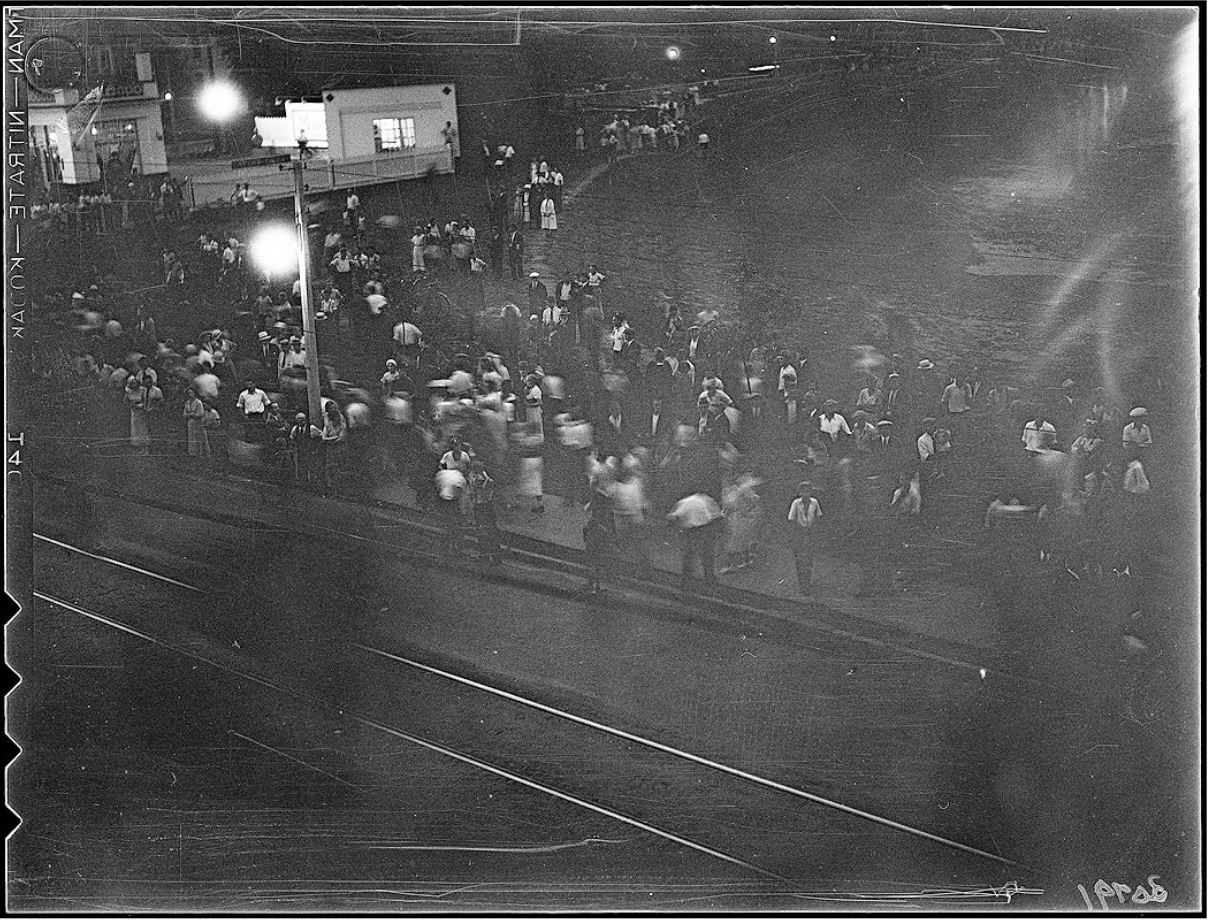In June 1991, the newsmagazine L’Actualité published portions of Esther Delisle’s doctoral thesis. It argued that anti-Semitic and pro-fascist sentiments were prominent amongst the French Canadian intelligentsia prior to the Second World War. Delisle claimed that Lionel Groulx was responsible for anti-Semitic statements made in the pages of the influential Montreal newspaper Le Devoir between 1929 and 1939. This research interested Mordecai Richler, who referenced Delisle’s work in his controversial 1992 bestseller, Oh Canada! Oh Quebec! Requiem for a Divided Nation. Delisle and Richler’s arguments and conclusions remained controversial for over a decade.

(photo de Markbellis/courteoisie de Wikimedia Commons)
Background
In August 1990, Esther Delisle presented her doctoral thesis to the political science department at the Université Laval in Québec City. Her research was divisive and politically contentious as she criticized Abbé Lionel Groulx — an important French-Canadian cleric and public intellectual who is generally considered the father of the nationalist school of Quebec history. Quebec nationalism was a particularly prominent political topic at the time and likely further inflamed debates over Delisle’s research.
Due to a combination of postponements, clerical errors, and alleged interference, Delisle would not defend her thesis until September 1992. Her defence lasted three hours in front of a five-member committee, and an audience of seventy spectators.
Findings of Anti-Semitism
Delisle stated that she had read every issue of the Montreal newspaper Le Devoir printed between 1929 and 1939. While doing so, she discovered anti-Semitic and pro-fascist sentiment amongst the French Canadian intelligentsia of the 1930s. Delisle also read other articles, pamphlets, books, and tracts from the same period that were published in Quebec that had anti-Semitic, racist or pro-fascist content.
Delisle argued that Lionel Groulx, in addition to two of Le Devoir’s editors at the time, regularly wrote anti-Semitic, racist or pro-fascist articles. Another book from the era, an anthology entitled La réponse de la race (1936) was edited by an individual using the pseudonym Lambert Closse (one of the first French settlers of what would become Montreal). This book was dedicated to Groulx and includes sections from the anti-Semitic text the Protocols of the Elders of Zion, a known forgery which claims that Jews intend on taking over the world. Delisle strongly suspected Groulx as the author, though admitted she had no concrete proof. Delisle’s research expanded on the study of anti-Semitism’s history in Canada, first explored in the 1982 book None is Too Many: Canada and the Jews of Europe 1933–1948 by the historians Irving Abella and Harold Troper.
Consequences and Backlash
Lionel Groulx is an important figure in the scholarly study of Quebec history. Irrespective of his motivations, Groulx helped lay down the academic foundation for studying the history of French-speaking people in North America, particularly New France. Delisle stated that she was dissuaded from conducting her research by colleagues and associates, who believed this would negatively impact her career, even if she could prove her argument conclusively. Indeed, Groulx was often characterized as a “father of Quebec nationalism.”
The portions of her research that were published in the summer of 1991 were initially well received, though they ultimately produced an angry backlash. Her research methods were questioned, but a parallel argument developed that downplayed Groulx’s apparent support of fascism and of anti-Semitism, as these views were said to be relatively common amongst Catholic intellectuals in the pre-war era. Adding to the complexity of the matter, some statements attributed to Groulx contradicted other statements he is known to have made. Despite, in principle, arguing against overt anti-Semitism, Groulx himself promoted anti-Semitic views. He also argued against Jewish immigration from Europe and advocated for the boycott of Jewish-owned businesses.
Mordecai Richler and Quebec Nationalism Debates
As Esther Delisle publicized and defended her thesis’ findings, well-known author Mordecai Richler joined in the debate. He linked Delisle’s findings with his broader criticisms of Quebec nationalism. He sought to defend the cause of the Anglophone minority of Quebec who felt Bill 101 was unfair. Richler ridiculed Quebec’s language laws and the Quebec nationalist movement in an essay for the New Yorker in September 1991. Richler expanded on Delisle’s argument in his 1992 book Oh Canada! Oh Quebec! Requiem for a Divided Nation, which was based on the New Yorker essay. Richler argued that the French-Canadian majority in Quebec had a long history of xenophobia and support for authoritarian institutions, a product of cultural isolation and dominance by the Catholic Church. He argued that this manifested itself as anti-Semitism, support of fascism, and an assault on the civil rights of the Anglophone minority.
However, critics argued that Richler went too far in his assessment. In his book, Richler makes an unsupported reference to a plot among the Patriotes “that all Jews … be strangled and their good confiscated” during the Rebellions of 1837-1838. According to sociologist Gary Caldwell, the historical record demonstrates that this statement was nothing more than hearsay by a paid police informant; it was not indicative of any anti-Semitic trend amongst the Patriotes. Former Bloc Québécois leader Gilles Duceppe called Richler “racist” in response to his book. Other aspects of the book were also criticized for inaccuracy.
Aftermath
Delisle’s research earned her a doctoral degree, but only by a thin margin. Of the 5 people who reviewed her dissertation in 1992, only 3 voted in favour of accepting it. Some criticisms pointed out that some of the references she included could not be verified. Delisle subsequently attempted to correct and clarify her original research in a book entitled The Traitor and the Jew in 1993. Her research and the conclusions she drew from it remain controversial and were debated for over a decade after the initial controversy began.
In 2002, a documentary entitled Je me souviens, largely based on Delisle’s work, was produced by Eric Scott. The documentary was broadcast in English and in French, on two different channels. Unlike the English broadcast, the French version was introduced by a statement from former Parti Québécois cabinet minister Claude Charron, who alleged that Delisle’s research was financed by the World Zionist Organization. Though this claim was found to be inaccurate, the film also contained some inaccuracies, namely the claim that there were anti-Semitic editorials in every issue 0f Le Devoir.

 Share on Facebook
Share on Facebook Share on X
Share on X Share by Email
Share by Email Share on Google Classroom
Share on Google Classroom



